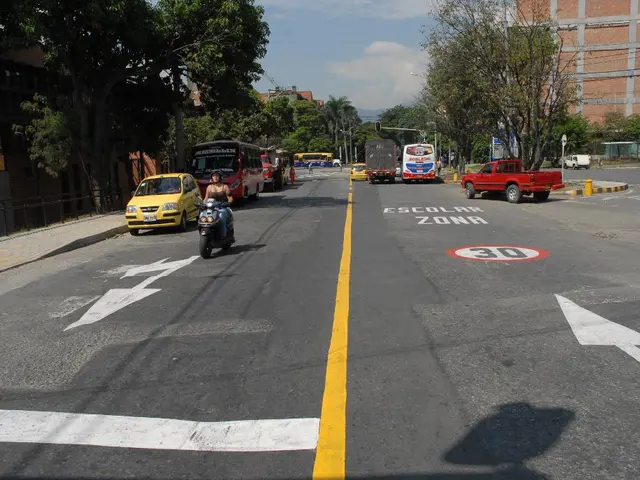Rail Disaster in Garmisch-Partenkirchen May Have Been Averted
In June 2022, a tragic train derailment near Garmisch-Partenkirchen resulted in the loss of four lives, including a 13-year-old, and left 78 people injured, 16 of them severely. On the 3rd of June, a regional train veered off its track, with three carriages sliding down the embankment and ending up on their roofs.
The Federal Bureau of Railway Accident Investigation (BEU) published a final report on the accident, confirming earlier investigations. The BEU concluded that dilapidated railway sleepers were the main cause of the accident. An internal report by Deutsche Bahn also attributed the train derailment to defective concrete sleepers.
The BEU did not deal with possible negligence of individual employees in its report. However, three Deutsche Bahn employees— a dispatch manager, a locomotive driver, and the track maintenance manager responsible for the route—were initially investigated for negligent homicide following the accident. Charges of negligent homicide were filed in December 2023 against a second dispatch manager, a track area supervisor (district track manager), and an inspector. The Landgericht München II allowed the charges against the dispatch manager and the district track manager to proceed to trial in April 2025.
Deutsche Bahn has announced it will take legal action against former board members of DB Netz and claim damages. The company is also implementing measures to prevent such accidents, including replacing all potentially risky railway sleepers and implementing extensive training and awareness-raising measures.
Responsibility for the infrastructure is now with a new company, DB InfraGo. As of now, a large number of concrete sleepers, namely two million, have already been replaced.
The train driver reported irregularities at the accident site to the duty controller on the eve of the accident, describing a "curve elevation" and a "swing" in it. Forwarding the report might have led to a different course of events, according to the BEU report.
The criminal trial against two railway employees will begin at the Munich Regional Court in October, accused of negligently causing the death and injury of victims. A verdict is expected in February next year, and originally, three employees were charged, but one case was dropped.
Deutsche Bahn demanded fines or settlements for some individuals, such as a team leader whose case was dropped against a monetary payment, but there are no reports of DB demanding further actions against the accused.
This tragic incident serves as a reminder of the importance of safety measures and accountability in the railway industry. Deutsche Bahn's actions and the upcoming trial will set a precedent for future cases and help ensure the safety of passengers and employees alike.
Read also:
- Proposal sought by the Commission for a new directive on safeguarding laborers from radiation related hazards due to ionizing radiation exposure.
- Treasured Institution, the Smithsonian, Unfalteringly Unscathed by Alterations [column]
- François Bayrou, in a recent disclosure by Mediapart, undertook a renovation project on his city hall office in Pau, costing around €40,000.
- Proposal for a Commission Directive forthcoming








